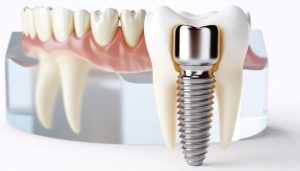Does Aetna Medicare Cover Dental Implants?
To determine if your Aetna Medicare plan covers dental implants, the answer will likely vary by plan. This article will explain the potential Aetna Medicare Advantage plans to ascertain whether dental implants may be included in your coverage, highlighting potential factors and considerations that could impact your benefits.
Key Takeaways
- Some of the Aetna Medicare Advantage plans in 2025 might offer varying levels of dental coverage, including dental implant coverage, which may differ among the various plan options such as HMO, PPO, D-SNP, and C-SNP.
- While preventive dental services may be fully covered by certain Aetna Medicare Advantage plans, comprehensive services, including dental implants, could be subject to plan specifications with potential limitations and out-of-pocket expenses.
- For those whose needs are not met by Aetna Medicare Advantage plans, some standalone dental insurance plans and Medicaid may offer alternative options for dental implant coverage, which may be subject to certain requirements and variability by state.
Compare Plans in One Step!
Enter Zip Code
Aetna Medicare Advantage and Dental Implant Coverage

As one of the leading private insurance companies, Aetna will likely offer an array of Medicare Advantage plans that could extend beyond the coverage provided by Original Medicare. Some of these Medicare Advantage plans may incorporate dental, vision, and hearing coverage, potentially offering a wider range of services that may not be covered by Original Medicare.
However, keep in mind that dental coverage and dental implant coverage may vary among Medicare Advantage plans.
Dental implants could be an integral part of restorative dental services. However, given that some dental implants may not always be covered, selecting a Medicare Advantage plan that could potentially include dental coverage could be vital if you require these services.
Types of Aetna Medicare Advantage Plans
Aetna offers several types of Medicare Advantage plans, including Health Maintenance Organization Point-of-Service (HMO-POS) plans, Preferred Provider Organization (PPO) plans, and Dual Special Needs Plans (D-SNP).
These plans differ in the level of flexibility they offer when it comes to choosing healthcare providers and the costs associated with using out-of-network services.
The HMO Medicare Advantage Plan, for instance, offers comprehensive coverage including prescription drug coverage, dental, vision, and hearing benefits, and access to SilverSneakers fitness memberships.
The PPO Medicare Advantage Plan, on the other hand, allows individuals to access any doctor who accepts Medicare and agrees to the plan’s terms, both within and outside their provider network. The plan covers 100% of all provided services, which can help reduce dental expenses.
Bear in mind that these benefits are associated with Medicare Advantage plans, not Medicare Supplement plans.
Possible Dental Implant Coverage in Aetna Medicare Advantage Plans
For dental implant coverage in some of the Aetna Medicare Advantage plans, a thorough examination of the plan details will likely be necessary. As recommended by the American Dental Association, reviewing your plan’s coverage and potential limitations could provide a clearer picture of what to expect.
Some HMO, D-SNP, and C-SNP plans may provide coverage for dental implants. Reviewing the specific details of each plan to comprehend the coverage options will likely be essential.
However, currently, there are no known PPO or Private Fee-for-Service (PFFS) plans that provide coverage for dental implants. Simply Healthcare D-SNP plans and Chronic Special Needs Plans (C-SNP) do include dental implants with no copay required.
To understand the coverage specifics, seniors may review their Evidence of Coverage notice, which provides information on whether dental implants might be included and some of the potential costs for orthodontics services.
Understanding the Potential Aetna Dental Benefits

Aetna’s dental benefits could be another crucial aspect to understand when exploring Aetna Medicare Advantage plans. Some of these benefits may be broadly classified into three categories: network benefits, direct member reimbursement allowance, and optional supplemental benefits.
Each category will likely come with its unique set of features and benefits that could be designed to cater to the diverse dental needs of the members.
However, be aware that some Aetna Medicare Advantage plans might:
- Limit the frequency of annual preventive care visits
- Impose restrictions on coverage for certain comprehensive services
- Be subject to a benefit maximum, which could limit the amount the plan may be able to reimburse for dental services.
Preventive Services

Preventive services will likely form the cornerstone of dental care, and certain Aetna Medicare Advantage plans might offer comprehensive coverage for some of these services. This might include:
- Routine cleanings every six months
- Comprehensive and periodic exams
- Dental x-rays
- Protective sealants
- Fluoride treatments
Some services may be covered up to 100% with no out-of-pocket cost under the Aetna Dental Direct plan, potentially making preventive dental care accessible and affordable.
In certain Aetna Medicare Advantage plans, preventive services such as cleanings, oral exams, and X-rays receive full coverage, and might also be covered at 100%. This could potentially mean that you won’t have to worry about out-of-pocket expenses for these services.
Moreover, certain preventive dental services may also be covered without any exceptions on the majority of Aetna Medicare Advantage Plans, possibly ensuring that you can maintain your oral health without financial strain.
Comprehensive Services

When it comes to comprehensive services, some of the Aetna Medicare Advantage plans could offer a wide range of treatments, including:
- Fillings
- Extractions
- Crowns
- Advanced dental procedures like root canals, periodontal treatments, and dental implants
However, the extent of hospital insurance coverage will likely vary based on the plan, which could impact the portion of costs you are responsible for.
Even though dental implants may be included in some of the Aetna Medicare Advantage plans’ comprehensive services, the degree of coverage may differ. Some plans might cover a significant portion of the cost, while others may impose certain limitations or restrictions on the number of implants, or the types of services covered.
Therefore, a detailed examination of your specific plan will likely be necessary to understand the potential financial obligation and whether Medicare covers dental implants in your case.
Optional Supplemental Dental Benefits

In addition to the standard dental benefits, certain Aetna Medicare Advantage plans may offer optional supplemental dental benefits. These benefits may be availed for an additional fee and could potentially provide more extensive coverage for dental services, including dental implants.
This could be particularly beneficial for individuals who may require specific dental procedures that aren’t covered under their existing plan.
Some of these supplemental benefits may also encompass services like:
- oral exams
- cleanings
- X-rays
- fillings
- root canals
This could provide an expanded scope of dental care coverage that could go beyond the offerings of original Medicare.
Potential Advantages of Supplemental Dental Benefits

Securing supplemental dental benefits could offer several advantages. Foremost among these could be the ability to potentially avail more extensive coverage for dental services. Some of the additional supplemental dental benefits may encompass a comprehensive range of dental services, such as:
- oral exams
- cleanings
- X-rays
- fillings
- root canals
- extractions
- dentures
- crowns
- bridges
- dental implants
This wide cover dental could potentially ensure that you may have access to the dental care you need without worrying about the expenses.
Some of these supplemental dental benefits may also be particularly valuable in cases where you require crowns, bridges, periodontics, orthodontia, and dental implants. They could also prove advantageous for individuals with specific health conditions such as diabetes, heart conditions, or oral cancer who may require extra cleanings or specialized oral care.
In essence, securing supplemental dental benefits could significantly reduce out-of-pocket costs and potentially provide extra coverage for services that may not be fully covered under the standard plan. Therefore, it would be wise to consider the option to purchase dental benefits for added protection and peace of mind.
Possible Costs and Limitations
While some of these supplemental dental benefits could offer extensive coverage, remaining mindful of the associated costs and limitations is important.
However, the cost-sharing structures for certain plans may differ based on the specific plan, especially for comprehensive services where a portion of the cost may be your responsibility.
Yet, there will likely be no deductibles for preventive care, which could help reduce your out-of-pocket expenses.
Understanding these potential costs and limitations could be crucial to making an informed decision about securing supplemental dental benefits.
How to Choose the Right Aetna Medicare Advantage Plan for Your Dental Needs

Choosing an Aetna Medicare Advantage plan that suits your dental needs is a crucial step toward receiving necessary dental care without financial strain.
This process will likely involve:
- Assessing your dental requirements
- Comparing the available plans
- Considering the scope of dental coverage that may be provided, which may encompass preventive services and more extensive treatments
- Taking into consideration your specific dental requirements, financial constraints, and preferred dental care providers
Aetna may also provide a plan comparison tool that could assist you in this process. This tool allows you to assess and compare various Medicare Advantage plans and their dental coverage, helping you select the most suitable option based on your requirements.
Assessing Your Dental Needs
When it comes to assessing your dental needs, a good starting point is to consider the recommended frequency of dental exams. Seniors should ideally undergo dental exams at least twice a year as part of their routine check-ups.
This could help in the early detection and treatment of dental issues, potentially preventing them from escalating into major problems.
It could also be essential to consider the prevalent dental issues that may be encountered by elderly individuals. These include:
- gum disease
- periodontal disease
- dental caries
- tooth loss
- dry mouth
By considering these common issues and your dental health history, you could identify your dental requirements and choose a plan that caters to these needs.
Comparing Aetna Medicare Advantage Plans
Once you have a clear understanding of your dental needs, the next step is to compare Aetna Medicare Advantage plans. Most of these plans may differ significantly in terms of dental benefits, making it crucial to thoroughly compare them.
You should look for potential details such as:
- Coverage of dental implants
- Any limitations or exclusions
- The percentage of coverage offered
- Any waiting periods or pre-authorization requirements
- Any annual or lifetime maximums on coverage
Certain dental benefits may vary between Aetna Medicare Advantage HMO and PPO plans. While both HMO and PPO plans provide full coverage for preventive services like cleanings, oral exams, and X-rays, certain PPO plans may offer additional comprehensive dental coverage.
How to Confirm Dental Implant Coverage with Aetna

Once you’ve chosen an Aetna Medicare Advantage plan, confirming dental implant coverage becomes the next important step. You may do this by contacting Aetna customer service and reviewing your Evidence of Coverage.
When reaching out to Aetna customer service, be prepared to provide your ID card number and have a list of specific inquiries about dental implant coverage.
This may also include questions about coverage inclusion for dental implants, any potential limitations or restrictions on dental implant coverage, the pre-authorization process for dental implant procedures, and any additional costs or out-of-pocket expenses that may be related to dental implant procedures.
Your Evidence of Coverage (EOC) document could be another crucial resource. This legally binding document will likely detail some of the potential benefits, costs, and services of your plan. It may also outline the coverage details for dental implants, potentially making it an indispensable tool for understanding your dental coverage.
To comprehend its contents, you may refer to a comprehensive guide available on the Aetna Medicare website, which offers a step-by-step explanation of the potential benefits, including dental implant coverage.
Contacting Aetna Customer Service
Aetna customer service can be reached by calling 1-800-US-AETNA (1-800-872-3862) (TTY: 711) between 8:00 AM and 6:00 PM ET, Monday to Friday. When reaching out to Aetna customer service, ensure you have your ID card number at hand.
By using the Member Services number on your ID card, you can make specific inquiries about dental implant coverage.
Inquiring about dental implant coverage could involve several key questions. You might want to ask about:
- The potential coverage inclusion for dental implants
- Any limitations or restrictions on dental implant coverage
- The pre-authorization process for dental implant procedures
- Any additional costs or out-of-pocket expenses that may be related to dental implant procedures
Reviewing Your Evidence of Coverage
Your Evidence of Coverage (EOC) document is a comprehensive resource that could outline the potential benefits, costs, and services of your Aetna Medicare Advantage plan.
Typically available in September, the EOC document is a legally binding agreement between you and your Medicare plan. It could provide detailed information about some of your plan’s dental benefits, including:
- Coverage for dental implants
- Limitations or restrictions on coverage
- Cost-sharing requirements
- Network providers for dental services
Make sure to review your EOC document carefully to understand your dental implant coverage and any associated costs or limitations.
When reviewing your EOC document, you might want to look for details such as:
- The coverage of dental implants
- Any limitations or exclusions
- The percentage of coverage offered
- Any waiting periods or pre-authorization requirements
- Any annual or lifetime maximums on coverage
By thoroughly reviewing these details, you could gain a clear understanding of your dental implant coverage and plan your dental care accordingly.
Alternatives to Aetna Medicare Advantage for Dental Implant Coverage
While some of the Aetna Medicare Advantage plans may offer comprehensive dental benefits, they might not cater to everyone’s needs. If your Aetna Medicare Advantage plan does not fully meet your dental needs, exploring alternatives could be beneficial.
Certain standalone dental insurance plans and Medicaid could be two potential alternatives for dental implant coverage.
Standalone dental insurance plans, offered by various insurance providers, may offer coverage for dental implants and could be a viable alternative if your Aetna Medicare Advantage plan doesn’t provide sufficient coverage. Medicaid, on the other hand, may provide coverage for dental implants in exceptional circumstances, specifically when they could be considered medically necessary by the state’s Medicaid program.
However, remember that dental implant coverage under Medicaid might significantly vary by state, hence checking with your state’s Medicaid office for specific details is crucial.
Standalone Dental Insurance Plans
Some of the standalone dental insurance plans may offer an effective alternative for individuals who may be seeking dental implant coverage. Certain plans may be able to provide coverage for a range of dental services, including dental implants.
Several leading insurance providers may also offer standalone dental insurance plans, including:
- Guardian
- Ameritas
- Spirit Dental
- Aflac
- Delta Dental
- Cigna Group Dental
- Humana
- Physicians Mutual Preferred
- Anthem
- The Dental Insurance Shop
- CarePlus
Although these plans might require an additional premium, they could offer extensive coverage for dental implant procedures.
However, it’s important to note that some of these plans may impose certain requirements such as waiting periods or pre-authorization for dental implant procedures. It’s crucial to thoroughly review these details before opting for a standalone dental insurance plan.
Medicaid and Dental Implant Coverage
Medicaid could be another potential source of dental implant coverage. While Medicaid is mandated to offer comprehensive dental services to individuals under 21 years of age, the coverage for adults may vary based on the discretion of individual state Medicaid programs.
Some states may provide coverage for dental implants if they’re deemed medically necessary, while others might not offer such coverage for adults.
To acquire Medicaid coverage for dental implants, you’ll likely need to have a doctor declare the procedure medically necessary first.
Following this, you must coordinate with your state’s Medicaid office to ascertain if the procedure could be covered. Bear in mind that the process and coverage may differ among states, and it’s crucial to verify the specifics with your state’s Medicaid office.
Summary
Understanding the potential dental implant coverage in some of the Aetna Medicare Advantage plans could be crucial to making informed decisions about your dental care. Certain plans may offer a range of dental benefits and varying levels of coverage for dental implants.
While certain supplemental dental benefits might provide additional coverage, some of the standalone dental insurance plans and Medicaid may also serve as potential alternatives for dental implant coverage.
It’s essential to carefully assess your dental needs, compare different plans, and confirm your coverage details to ensure you receive the necessary dental care without undue financial strain.
Frequently Asked Questions
→ Does Medicare pay for dental implants?
No, Medicare will likely not cover dental implants. However, some Medicare Advantage plans may offer coverage for this procedure, so it’s important to check your specific policy for details.
→ How often will Medicare pay for a set of dentures?
Medicare will likely not cover the cost of dentures or routine dental care, like exams and cleanings.
However, some Medicare Advantage plans may provide coverage for dentures, with varying costs and benefits. It’s important to carefully review the details of different plans.
→ Does Aetna Vital Savings cover implants?
Yes, Aetna Vital Savings might cover implants, along with other dental services, and may even offer discounted rates at various dental practice locations nationwide.
→ Do all Aetna Medicare Advantage plans cover dental implants?
No, coverage for dental implants will likely differ among Aetna Medicare Advantage plans, so it’s important to review your specific plan for details.
→ What are some of the important components of Aetna’s HMO Medicare Advantage Plan?
Some of the key components of Aetna’s HMO Medicare Advantage Plan will likely include prescription drug coverage, and dental, vision, and hearing benefits.
Some of these benefits could offer a comprehensive approach to healthcare for Medicare beneficiaries.

ZRN Health & Financial Services, LLC, a Texas limited liability company
Russell Noga is the CEO of ZRN Health & Financial Services, and head content editor of several Medicare insurance online publications. He has over 15 years of experience as a licensed Medicare insurance broker helping Medicare beneficiaries learn about Medicare, Medicare Advantage Plans, Medigap insurance, and Medicare Part D prescription drug plans.



